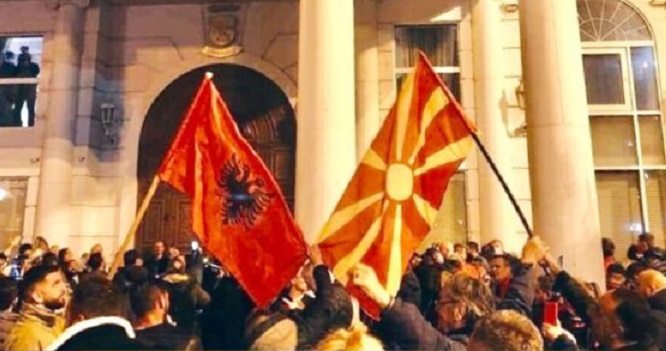The Albanian opposition should take an example from the Macedonian opposition, “Almakos” writes.
Four years ago, Macedonia’s largest opposition party, VMRO-DPMNE, lost almost all municipalities in the country, including the historic ones. It was Nikola Gruevski’s first defeat since 2006 when he came to power. He resigned, faced attacks and lawsuits, was convicted, but was granted asylum in Hungary, where he still lives today.
His party, anathematized by the international community, weakened and it was thought it would never rise again. He organized inter party elections, and Hristijan Mickoski was elected president instead of Gruevski. The leadership consisted of young people, but also with contributions and votes in the party and in the electorate. They retained their doctrinal approach as a political force created in 1903 and an anti-regime party during the communist era. They also distanced themselves from the political extremism of Gruevski’s time, but never attacked him (Gruevski) personally.
They, as members of the European People’s Party, pursued a pro-Western agenda, but in the meantime removed from the party all corrupt members of the former leadership led by Saso Mihajlkov, the former secret police chief, who is now in prison.
They also joined an agenda along with Ziadin Sela’s Albanian opposition and Alternative, with whom they were in a political war. They are united by the fight against corruption and the civic agenda for integration. Despite losing the presidential election two and a half years ago, they did well in last year’s general election and triumphed in 2021 in the local election. They renewed themselves, got united with themselves, with the citizens and with the Albanian opposition and triumphed.
Although Zaev was the leader who has the greatest possible international support in the history of Macedonia, he lost big time.
These messages must be received by the Albanian opposition, which is going from defeat to defeat, divided among itself and its allies, without international credibility, without a program and goals, and completely under the control of the local oligarchy. This way it is likely to have a long life in opposition…
I should take an example from the Macedonian opposition!





Comments are closed for this post.